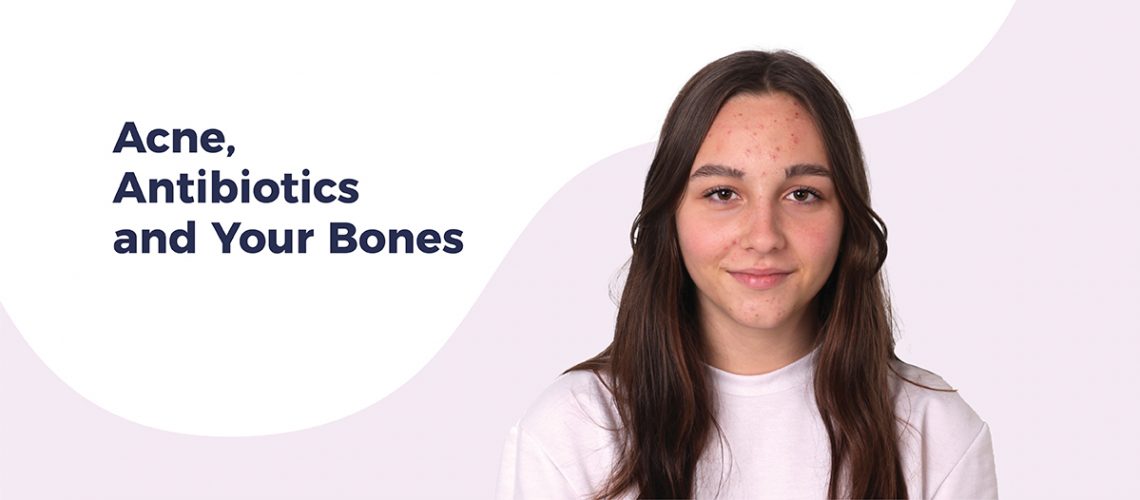Digest This
Click on the topics below to learn how probiotics can improve your digestive health, naturally.

Acne, Antibiotics and Your Bones
- @drHoberman
- Children’s Health, Drug interactions, Healthy Aging
Acne, Antibiotics and Your Bones
The human body develops as much as 40 percent of its peak bone mass during our teenage years, and at the same time our microbiome matures.
For many teens, those puberty years are often plagued with raging hormones leading to problems with acne.
When over-the-counter skin care products don’t do the job, often, dermatologists recommend prescription-strength creams in combination with an antibiotic.
Fortunately, most health experts recognize the damage antibiotics can do to deplete the beneficial bacteria in the human gut, especially when antibiotics are taken for extended periods of time.
What happens to a teenager’s health when dermatologists prescribe antibiotics for as long as two years?
The damage goes way beyond the human gut and may affect the development of a teenager’s bones as they mature, according to research appearing in The Journal of Clinical Investigation.
Here’s how…
Getting To The Gut
Scientists at the Medical University of South Carolina had previously conducted a study that showed how high doses of antibiotics triggered an inflammatory response that impaired the maturation of bones and increased the activity of osteoclasts that break down bone tissue.
These previous results led this team to study the effect one dose of a common antibiotic — minocycline, a member of the tetracycline class of drugs — would have on the bone growth of mice at a similar age as humans during puberty (6-12 weeks old).
Three concerning takeaways that affect gut health:
- Mice didn’t experience an inflammatory response as before, but the presence of an antibiotic changed the healthy mix of gut bacteria that triggered a decrease in bone mass and affected how their skeletons matured.
- The long-term use of antibiotics prevented the tiny microbiomes and skeletons of mice from recovering to a stable state even after the antibiotics were stopped.
- Not only did the presence of an antibiotic disrupt the composition of gut bacteria, it also affected the way the liver communicates to the small intestine via bile acids, triggering significant decreases in the formation of bones.
Probiotic Protection
While antibiotics still remain one of the go-to treatments for acne, health organizations like the American Academy of Dermatology recommend taking them for the shortest effective duration to prevent future problems with antibiotic resistance.
However, if you really need to take an antibiotic, a recent report we shared with you points to evidence that taking a probiotic can be effective for treating acne as well as protecting the health of your gut.
To get the protection you need, be sure that any probiotic you take is formulated with multiple and proven strains of beneficial bacteria from the Lactobacillus and Bifidobacterium families like the healthy mix contained in EndoMune Advanced Probiotic.
Resources
The Journal of Clinical Investigation
Medical University of South Carolina
There Is An Endomune Probiotic For Every Lifestyle
-
EndoMune Metabolic Rescue
$44.95 -
EndoMune Advanced Probiotic
$42.95 -
EndoMune Companion Pack
$112.93








